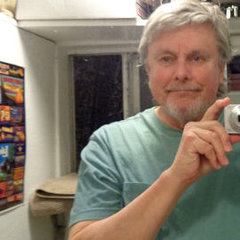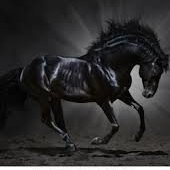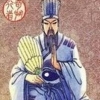Leaderboard
Popular Content
Showing most thanked content on 03/30/2024 in all areas
-
4 pointsWe each experience reality from the center of our own awareness and that experience always seemingly alights in awareness as whole and complete with no holes or ommissions. Yet this does not imply that we experience the all of reality... just that our experience is whole and full for us. My gal is navigating a process by which one of her eyes has ceased to function accurately at all. She's nearly blind in one eye. The lense has become distorted and dimpled and so refracts light in myriad directions, not just a single direction (which is readily corrected for by glasses/lenses). She is amazed when looking at the same picture with each eye seperately and how vastly different they appear given how the signals are received by the conditioned perceptual system and it trying to rectify imaging through the usual process. The reality for her is that when it's not reconcilable for both eyes to contribute to a picture of the world that reconciles as complete, her brain simply shuts down the input from one eye and ignores it utterly, so as to compensate for the experience of wholeness. Yet her experience of seeing is not diminished in her experiential process at all. It still seems complete and whole, (unless she closes the dominant eye and forces the subbed eye into operation). We learned about this with our son when he was in 4th grade and one of his teachers realized his eyes were not tracking accurately. Through working with an optometrist and a set of exercises, we were able to aid him in developing more accuracy which allowed him to read and process more readily... but in the process of finding out where his alterations of perception lay... there were clear indicators of when his brain was simply shutting off input entirely from one eye, depending on conditions and fatigue, etc. It was utterly fascinating to witness first hand. And this is perhaps why Naive Realism is still so rampant among humans to this day, even though it's been summarily dismissed since the age of the Stoics. It is a compelling notion that our experience of life is whole, complete and accurate, and it's also very comforting to assume we see the world as it is, entirely accurately when it's all actually interpretation, storytelling, projective and assumption/conditioning based. At this point much of the cultivation process seems like a dance with the process of bringing awareness to the process of the Storyteller who crafts elaborate and detailed stories about the nature of reality, from the few parcels of signals that we receive from our perceptual process. It's quite disconcerting (or downright horrifying) to come face to face with the aspects of our assumptions about perception and the universe and realize they are wholly innacurate illusions. At this point for me, the realm of absolute certainty is the realm of the arrogance of ignorance. And it's entirely understandable that so many folks retreat from such processes of awakening when they get glimpses through the veil, it's quite disorienting and uncomfortable and so rather than pursue the path of truth, they dig back in deeply to the comfort of Naive Realim and the absolute certainty of former interpretation versus exploring what is... edit to add: Adyashanti has two statements that resonate on this point for me: "Most of us want to feel better, we don't actually want to see that we're misperceiving things. But that's the core of spirituality. And the only way to really wake up is to realize that the way you perceive yourself is not true." Adyashanti " Enlightenment is a destructive process. It has nothing to do with becoming better or being happier. Enlightenment is the crumbling away of untruth. It's seeing through the facade of pretence. It's the complete eradication of everything we imagined to be true." Adyashanti
-
3 points
-
3 points
-
2 points
-
2 points
-
2 pointsAt this point on my path, awareness is buddha nature. And zen, chen and dzogchen have all risen to prominent resonance via the implicit nature of their focus and sharings.
-
1 pointHello from the happyAlien Keen to share experiences of this wild world and discuss the mysteries with you all
-
1 pointI was trying to find the cat thread started by Taomeow to post there but didn't...anyway I came across some health tips for cats that some people may be interested in, there is an advertisement angle to it but the info sounds pretty good concerning dubious big name cat food suppliers that put only god know what into their cat food being that there is little or no regulations for same! For instance pet foods with all sorts of fillers and grains that are not good or detrimental to your cats health. The vets name and cat food product is from Dr. Marty which can easily be found with a web search. And I'm pretty sure there are other vets that are in agreement with his warnings about all the fillers in cat and dog food since they are supposed to be mostly be eating like carnivores.
-
1 point
-
1 pointNo . Its back in the foggy memory of 1001 anthropological papers from the past . I am deliberately NOT citing their name here as now they have a better history and this sad period of their near extinction is now not mentioned when one looks them up . You can tell 'someone else' that I am fine with someone else who I have never met and never will and never know who they are , not being impressed with me . I am not writing here to make 'good impressions ' . Oh yes, and you can also tell them from me .
-
1 pointwhen I get my horse and buggy, you're the first person I'll go for a ride with.
-
1 pointVictor Karlovich Shtemberg Le sirene in riva al mare "Sirens by the Sea" (1896).
-
1 point
-
1 pointWait, but I thought that passage was explaining the method for starting stage 2, gathering the ingredients and then circulating the MCO until they coalesce, starting the MCO and ending the leakage. Oh I see, I kind of mentally flew over the first part since I didn't understand it. Yeah that does kind of sound like code for ending the leakage. So the sealing is happening at the end of stage 2 and then it says to continue refining it using breath focused on the LDT cauldron, which from what I've read is how you will continue nurturing it for the entire process until it reaches the UDT and is ready to exit and doesn't need to be nurtured anymore or something. And I think the cauldron stays in the LDT the whole time but the embryo is migrating between the dan tiens Thanks that was helpful
-
1 pointit is ok to be confused because this passage does not specify the MCO by name 周天 but implies that it has happened. Here the MCO is mentioned under the code formula of "reversed the five agents and have brought the eight trigrams together". The translator adds to the confusion by never using the term 'orbit' (instead he uses 'celestial revolution') https://ctext.org/wiki.pl?if=gb&chapter=55952&remap=gb so this passage describes how the MCO has been completed and the embryo has been 'firmly sealed' as i mentioned earlier 牢固封闭 to answer your question, this passage says: 1 first circulate the MCO, 2 then stop the MCO , 3' firmly seal' and heat the cauldron which by now contains the embryo. https://www.goldenelixir.com/files/Ruyao_jing_Commentary_SAMPLE.pdf page 28
-
1 pointSomething came to my mind. I've noticed that yawning has a relaxing effect on the face and eyes. I usually feel the stomach meridian that runs through the middle of the cheeks streching and opening and after that the eyes get watery which is good as they get lubricated and relax.
-
1 pointWalking Two Paths simultaneously is among the most practical and profound teachings I've encountered.
-
1 pointMarvellous, how everyone has their own constant unique direct and unfailing and perception of ‘true reality‘ and ‘objectivity’! I do admire those who have it, life must be a lot easier….
-
1 pointLook @blue eyed snake, first of all i agree with you that any method is dangerous. So thanks for stressing that one more time But 1 no method is more dangerous than everyday living. look up the traffic accident statistics 2 as to a trusted teacher - A) there is no such individual, because you see all the marks are ripped of by someone they trusted, otherwise they would not get ripped off B ) a teacher guarantees nothing especially a digital one hehe. check out their ads - not a single guarantee there even if its not, it is still hilarious how they got triggered and ganged up on you;) very amusing. particularly because they have no relation to subject matter (well except @SirPalomides he is a jolly good fellow) the important thing is never to get angry at the hecklers. the show must go on.
-
1 point
-
1 pointThere is much here to read and while I do not claim to know anything useful, I do remember the story of the Buddha answering the question of "Is there a GOD?". Buddha spoke to the first man for a while and then answered there is no God. Then Buddha spoke to a second man for a while and then answered there is a God. One of his students asked, what is the truth? Buddha replied that giving each their answer that they wanted would have ended their spiritual journey. His answer was to bring them back to continue their journey. So, the student asked, is there a God? The Buddha replied, what is important is completing the journey to the destination. I have thought about the notion of no self. That we are just an aggravate of things and so those things fall apart then so does this self. It makes some sense that we are our bodies. Drink alcohol and it affects our consciousness. We are our bodies. So, when the body dies, we die. So, then, what is the point to finding the truth of Buddha nature? What does it matter if there is no self, no soul to continue on. Yeah, so there must be something else. A consciousness which is exactly the same as another therefore no difference. And as such, they are the same??? One with the universe?? This only brings more questions and the mind to think about more things. And so, I was attracted to Zen Buddhism where they cut the distractions out and concentrate on opening the mind to Buddha nature, the truth of our nature, enlightenment. The Dharma is taught but it isn't talked about to the point of creating sides or lines of thought. So, concentration on the meditation has been a focal point that has not yielded much fruit in my case. May be I am doing something wrong??? Sorry, I have no answer to whether to believe in God or not. I would not discourage it. Nor would I encourage it. Just that what ones grows up with, culture, has it way with where we stand and where we go. Our past determines our present state and this present state determines our future.
-
1 pointMajor rabbit population problem, major cat population problem . Too many 'other critters' being killed problem . Too many camels, too many goats, too many foxes , too many horses in some places . Too many kangaroos . https://citynews.com.au/2022/1645-kangaroos-removed-the-cull-falls-silent/
-
1 point
-
1 pointhttps://arthive.com/artists/71356~Sushienok64_mailru_Mikhailovich_Sushenok_Igor/works/p:2 Igor Mikhailovich Sushenok was born on March 31, 1964 in the town of Zlynka, Bryansk Region. Igor received the first basics of drawing with his brother Alexander from the Zlynkovsky artist-designer Trofim Trofimovich Bobrov, then study continued at the Novozybkovsky art school. After serving in the army, he studied (1990-1996) in Moscow at the Russian Academy of Painting, Sculpture and Architecture, headed by the People's Artist of the USSR, academician of the Russian Academy of Arts, Ilya Sergeyevich Glazunov. From 1998 to 2002 studied in the creative workshop of the Russian Academy of Arts under the guidance of People's Artists of the USSR, full members of the Russian Academy of Arts, brothers Sergey Petrovich and Alexei Petrovich Tkachev. Since 1997, is a member of public regional and foreign art exhibitions. Awarded with a diploma of the Russian Academy of Arts of the second degree (2002). In 2005. awarded the medal of the Russian Orthodox Church of St. Sergius of Radonezh of the first degree. Currently lives and works in the city of Moscow.
-
1 pointi am pretty certain that no one;) thats all true but the issue is ...what are these goblet words or this non-speech good for?
-
1 pointThis is very interesting! Has anyone else put forward a reading like this? If your reading is correct, it might line up with something I noticed about Zhuangzi- many people notice Zhuangzi's skeptical attitude toward conventional language, and stop there, without noticing his idea of "goblet words", his expansive idea of language, speaking non-speech, that can indeed harmonize with the flowing character of life.
-
1 pointI would gladly give you all my worldly goods when I would get back my ability to walk and generally use my body. so only a horse is a bargain
-
1 point
-
1 pointMaybe you should be asking, "How do we let all those things that distract us - mental noise, go?" We cling to those things - thoughts/emotions/feelings because they give us a counterpoint to us. By simply staying as that one who knows the noisy aspect of the mind, the focused aspect of the mind, the still aspect of the mind, and not chasing after these aspects - it will develop a deep relaxation. That relaxation (release).
-
1 point
-
1 pointOf course, all of that ^ is about being 'powerful' ... for the individual, the group, the clan , the culture . Invaders and suppressors do not want that . Invaders often suppressed local culture and demanded conformity . Thats one of the reasons Cyrus was named 'The Great' ; they had a different policy - that if one allowed and actually helped people retain their culture and religion , they would be happier, productive and less rebellious .
-
1 pointIn reply to Taomeow's post about Eastern European pork delights, I have eaten them in Hungary in a breakfast banquet and it was really nice especially when paired with vegs. like fresh tomatoes, radish red and green peppers. Highly recommended. But my personal favourite pork food is Spanish Ibérico ham. Otherworldly!
-
1 point
-
1 pointThese are sculptures of the deity Tlaloc from the Museum of Anthropology in Mexico City. To the natives, he was "the god who came from the sky," god of thunderstorms and destruction. However, some of Tlaloc's depictions do not look god-like or menacing. For example, here he looks more like a rather depressed pilot from a crushed plane.
-
1 pointChatgdp? Curious choice for a topic requiring subtle synthesis of complex human social interaction and context to approach understanding. With all the reams of magnificent minds drawing and synthesizing life experience, resonant insights and human realizations... you turn to random amalgamations of a non intuitive regurgitation software package... disappointing to me, but it does seem to be the flavor of the month. Is it I wonder, a generational thing?
-
1 point‘grandiosity’ & ‘depression’ are two sides of the same coin. No worries, you will find the middle way. Be well.
-
1 point
-
1 pointI have found that, particularly if one has a body, there is likely to be discomfort, there may be pain, but this does not mean I have to suffer. Though suffering is not in itself ever a physical process, it is mentation based and emotionally charged. Suffering (in my experience) is a layer of perception that is superimposed onto experiential reality. At this point it seems mostly generated by the verb process of egoing and entirely secondary and self generated/imposed. Shakespeare addressed it adroitly in the scene between Hamlet, Rosencranz and Guildenstern when Hamlet says... "I could be bounded in a nutshell, and count myself a king of infinite space, were it not that I have bad dreams."
-
1 point
-
1 point
-
1 point
-
1 pointYes, no one denies that the 5 skandhas and all of phenomenal reality is "anatta" or without self. The question is whether there is a transcendental "Self" similar to the Hindu Atman. Admittedly a majority of Buddhists would say no, yet throughout Buddhist history there have been detractors to this view. Nibbāna as True Reality beyond the Debate by Potprecha Cholvijarn is a look at the debate in contemporary Thailand. That said in many Mahayana sources, particularly Tathagatagarbha literature but also in Mikkyo, etc. one of the four "gunaparamitas" or transcendental qualities of the Absolute element (Dharmakaya/Nirvana) is "Self". Here's a snippet from Susan Hookham's "The Buddha Within": The Four Transcendental Qualities. The Absolute Element is described as having four transcendental qualities (gunaparamita, yon tan pha rol tu phyin pa) when it fully emerges as the fruit of the path. "Transcendental" here is a translation of the Sanskrit word "paramita" meaning passed over to the other side; it is often translated as "perfection." The four transcendental qualities are, (1) transcendental purity (subha paramita, gtsang ba pha rol tu phyin pa), (2) transcendental self (atma paramita, bdag pha rol tu phyin pa), (3) transcendental bliss (sukha paramita, bde ba pha rol tu phyin pa), and (4) transcendental permanence (nitya paramita, rtag pa pha rol tu phyin pa.) Of course if you are more interested in a purely Theravada perspective, the previous article I linked and the book already mentioned are good ones, but other works explaining the differing perspective are those by George Grimm and Self & Non-Self in Early Buddhism by Perez-Remon. Well "eternalism" is the view of perpetual existence in time or as a particular individual, such as a Christian conception of "John Smith" living eternally in heaven. That said timelessness is another form (or rather the true form) of eternity and nirvana is often equated with timelessness and thus is eternal. Walpola Rahula from “Voice of Buddhism” magazine, Vol 20 No.1: Buddhism does not stop there. It goes a step further and says that there is a state which is beyond cause-effect and beyond space-time (akalika, Kalavimutta). That is the ultimate absolute “Truth” called Nirvana, which is outside the scope of physical science.

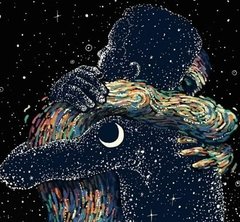
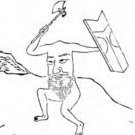


.thumb.jpg.dec3ed0d837a7d44c365eb5d82a9756c.jpg)



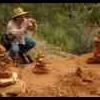
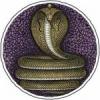
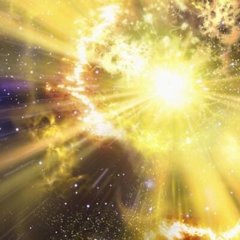
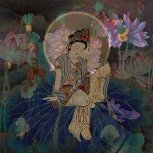



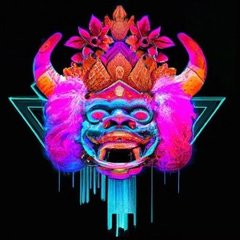
.thumb.jpg.0279361507cce6eb60b037b7a68d8dc9.jpg)


